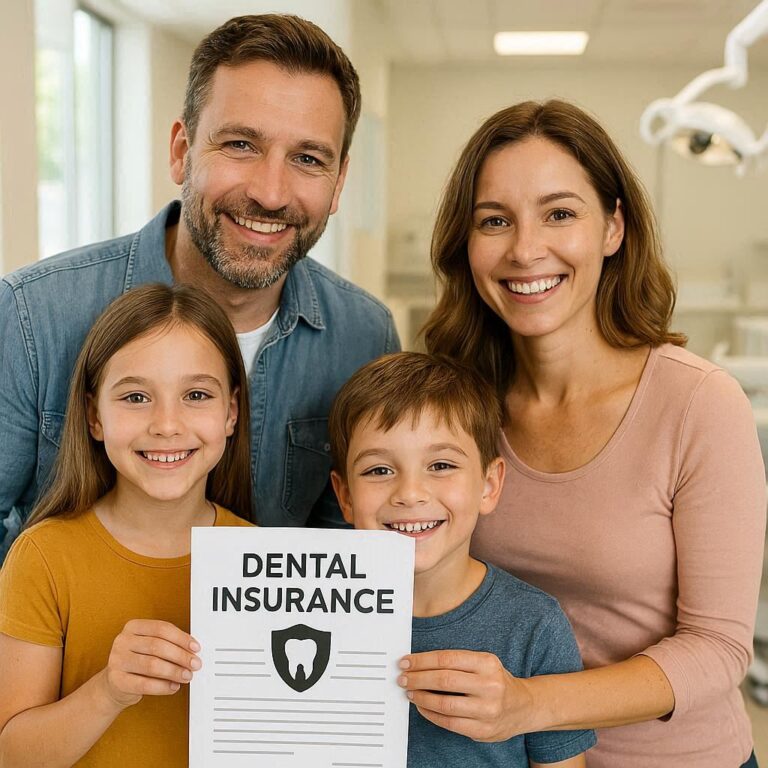The Ultimate Guide to Dental Insurance That Covers Adult Invisalign
A straight, confident smile is something many adults desire, but traditional metal braces can be inconvenient and aesthetically unappealing. Invisalign offers a discreet, comfortable alternative, but the cost can be a major concern. The good news? Many dental insurance plans now cover Invisalign for adults—at least partially.
However, navigating insurance policies can be tricky. Some plans exclude adult orthodontics altogether, while others impose strict limits. This comprehensive guide will help you understand:
-
Which dental insurance plans cover adult Invisalign
-
How to maximize your benefits
-
Alternative financing options if insurance falls short
By the end, you’ll have a clear roadmap to achieving your dream smile without breaking the bank.

2. Understanding Invisalign for Adults
What Is Invisalign?
Invisalign is an orthodontic treatment that uses clear, removable aligners to gradually shift teeth into proper alignment. Unlike traditional braces, these aligners are nearly invisible and can be taken out for eating and cleaning.
Benefits of Invisalign Over Traditional Braces
-
Aesthetic Appeal: Clear aligners are far less noticeable than metal brackets.
-
Comfort: No wires or brackets to cause irritation.
-
Convenience: Removable for meals and oral hygiene.
-
Faster Treatment Time (in Some Cases): Some patients see results in as little as 6–12 months.
Who Is a Good Candidate for Invisalign?
Invisalign works best for mild to moderate orthodontic issues, such as:
-
Crowded teeth
-
Gaps between teeth
-
Overbites, underbites, or crossbites
Severe cases may still require traditional braces. A consultation with an orthodontist will determine eligibility.
3. The Cost of Invisalign Treatment
Average Cost Without Insurance
The average cost of Invisalign ranges from 3,000 to 8,000, depending on:
-
Treatment complexity
-
Geographic location
-
Orthodontist’s experience
Factors Affecting Invisalign Pricing
| Factor | Impact on Cost |
|---|---|
| Treatment Length | Longer treatments = higher cost |
| Case Complexity | Severe misalignment increases price |
| Dentist vs. Orthodontist | Orthodontists may charge more |
| Location | Urban areas tend to be pricier |
4. Does Dental Insurance Cover Adult Invisalign?
How Dental Insurance Typically Handles Orthodontics
Most dental insurance plans categorize Invisalign under orthodontic treatment. However:
-
Children’s coverage is more common (under age 18 or 19).
-
Adult coverage is rarer but available in some plans.
Differences Between Child and Adult Coverage
-
Age Limits: Many plans cut off orthodontic benefits after age 18.
-
Lifetime Maximums: Some plans impose a 1,000–3,000 lifetime cap on orthodontics.
-
Waiting Periods: Certain insurers require 12+ months before covering orthodontics.
5. Best Dental Insurance Plans for Invisalign
Here are some top providers that may cover adult Invisalign:
Top Providers Offering Invisalign Coverage
-
Delta Dental – Some PPO plans cover adult orthodontics up to 50%.
-
Cigna – Offers plans with orthodontic benefits for all ages.
-
MetLife – Certain policies include adult Invisalign coverage.
-
Aetna – Select plans provide partial reimbursement.
Comparing Coverage Limits and Waiting Periods
| Provider | Coverage Limit | Waiting Period |
|---|---|---|
| Delta Dental | Up to $2,500 | 12 months |
| Cigna | Up to $1,500 | 6–12 months |
| MetLife | Up to $3,000 | 12–24 months |
6. How to Maximize Your Insurance Benefits for Invisalign
Verifying Your Coverage
-
Call your insurer and ask:
-
Does my plan cover adult orthodontics?
-
What is the lifetime maximum?
-
Is there a waiting period?
-
Using FSA/HSA Funds for Invisalign
If insurance doesn’t cover enough, Flexible Spending Accounts (FSAs) and Health Savings Accounts (HSAs) can help pay for Invisalign with pre-tax dollars.
Discount Plans as an Alternative
Some dental discount plans (e.g., Careington, DentalPlans.com) offer reduced rates on Invisalign.
7. Steps to Getting Invisalign with Insurance
-
Find an In-Network Provider – Lower out-of-pocket costs.
-
Get a Pre-Treatment Estimate – Submit a predetermination of benefits.
-
Explore Payment Plans – Many orthodontists offer financing.
8. Common Myths About Invisalign and Insurance
❌ “No insurance covers adult Invisalign.”
✅ Reality: Some do—check your policy.
❌ “Invisalign is only for minor corrections.”
✅ Reality: It can treat many moderate cases.
9. Frequently Asked Questions (FAQs)
Q: How much will insurance pay for Invisalign?
A: Typically 20–50% of the cost, up to a lifetime maximum.
Q: Can I get Invisalign covered under medical insurance?
A: Rarely—only if medically necessary (e.g., TMJ-related issues).
Q: Are there cheaper alternatives to Invisalign?
A: Yes—clear aligner brands like SmileDirectClub, but they lack orthodontist supervision.
10. Conclusion
Dental insurance that covers adult Invisalign does exist, but policies vary widely. By researching plans, verifying benefits, and exploring financing options, you can make orthodontic treatment affordable. Start by consulting an in-network orthodontist and checking your insurance details today!


